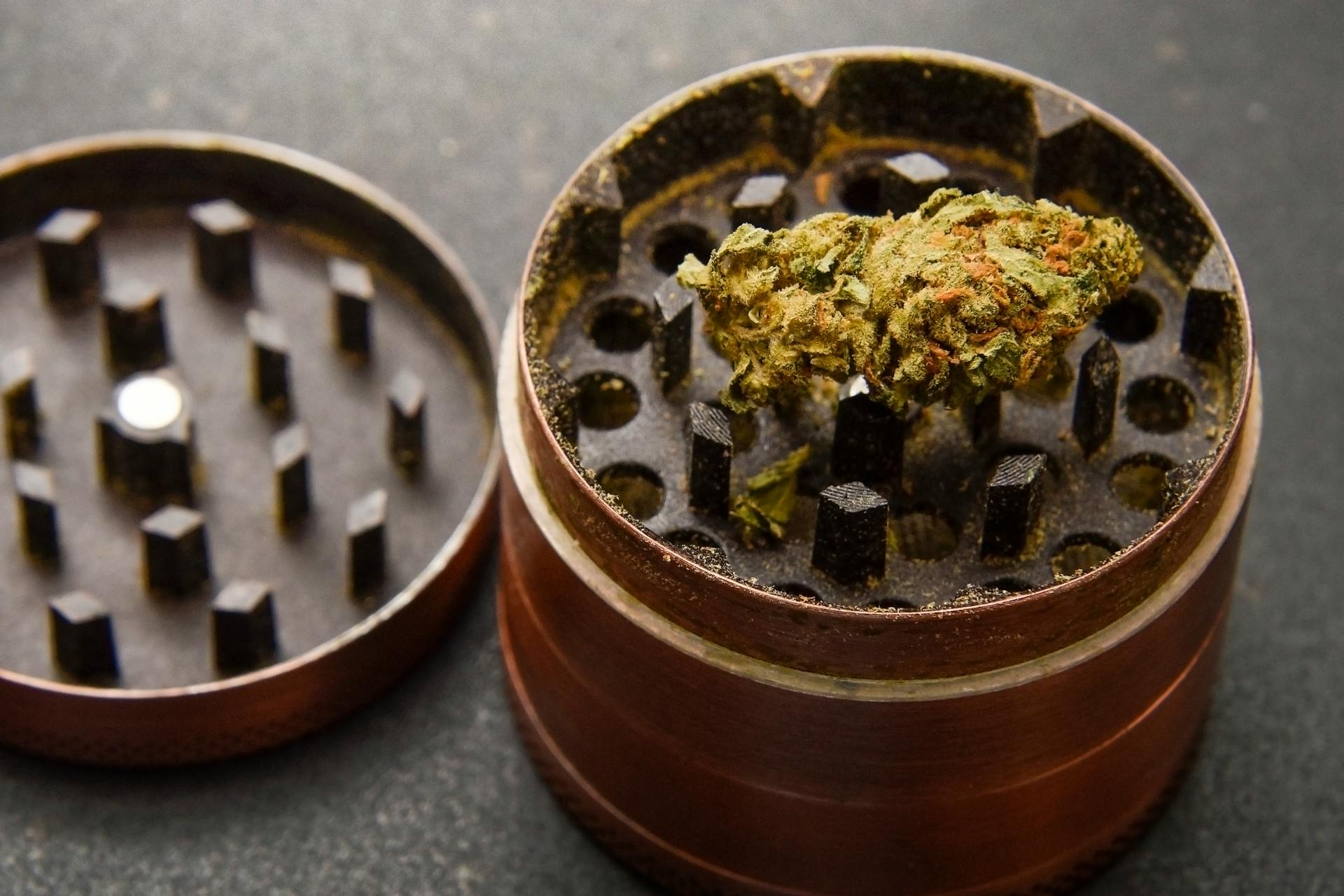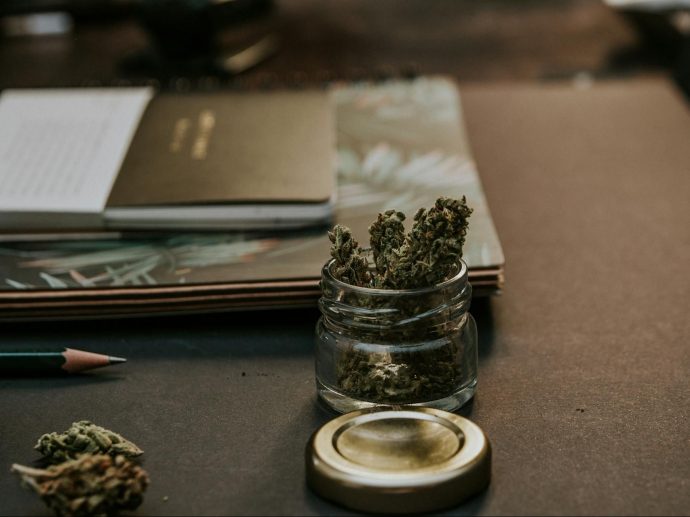Categories more
- Adventures (16)
- Arts / Collectables (15)
- Automotive (37)
- Aviation (10)
- Bath, Body, & Health (75)
- Children (6)
- Cigars / Spirits (30)
- Cuisine (16)
- Design/Architecture (19)
- Electronics (12)
- Entertainment (4)
- Event Planning (3)
- Fashion (44)
- Finance (9)
- Gifts / Misc (6)
- Home Decor (44)
- Jewelry (39)
- Pets (3)
- Philanthropy (1)
- Real Estate (12)
- Services (22)
- Sports / Golf (14)
- Vacation / Travel (60)
- Watches / Pens (14)
- Wines / Vines (24)
- Yachting / Boating (15)
Focus, Flow, and THC: Can Cannabis Enhance Athletic Mindsets?
Published
07/02/2025Performance isn’t just physical. Anyone who’s spent time chasing a personal best—or pushing past the mental wall in a long-distance run—knows that the mind can be your biggest ally or your worst distraction. High-performing athletes are now exploring tools beyond hydration packs and protein powders. One of the more unexpected players stepping onto the track? Cannabis.
Once dismissed as a post-game indulgence or counterculture symbol, cannabis is starting to get a second look among fitness enthusiasts and even some professional athletes. And no, they’re not lighting up between reps. The conversation today is far more nuanced—centered on microdosing, non-intoxicating cannabinoids, and timing. Whether it's a marathoner easing into a steady rhythm or a yogi seeking deeper focus, there's growing curiosity about whether cannabis can actually support flow states, mindfulness, and sustained athletic effort.
And as legalization expands across Canada, access is no longer an issue. For those curious about experimenting with cannabis in a thoughtful, performance-oriented way, it’s now entirely possible to buy weed online from XpressGrass—a trusted source that provides detailed strain information, potency levels, and fast delivery. But before hitting “add to cart,” it’s worth exploring what the science, psychology, and real-world athletes are saying about THC, CBD, and the mental side of sport.
Why Athletes Are Talking About Flow
Flow isn’t some woo-woo buzzword. Psychologist Mihaly Csikszentmihalyi coined the term in the ’70s to describe that feeling of being "in the zone”—total immersion in an activity, where action and awareness merge. It's when runners forget the miles, climbers lose all sense of time, and lifters hit new PRs without overthinking form.
The catch? Flow is notoriously hard to trigger on demand. Athletes and high-performers often rely on rituals, breathwork, music, or specific warmups to reach it. But recently, some are asking: Could cannabis be another way in?
Cannabis—especially certain strains and cannabinoids—may help some users bypass mental noise, self-criticism, or anxiety. In solo or endurance sports, where staying mentally present is half the battle, this kind of mental support might be worth exploring.
THC and the Mind-Body Loop
Let’s be clear: not all cannabis is created equal. High-THC strains can produce a euphoric “high,” which might sound like the opposite of focus. But in small doses—emphasis on small—THC has been reported by some users to sharpen sensory perception, boost motivation, and ease the mental rigidity that can get in the way of a good workout.
This comes down to how THC interacts with the endocannabinoid system, which helps regulate mood, pain, sleep, and cognition. In controlled doses, THC may help reduce performance anxiety, elevate mood, and support that body-mind synchrony athletes crave.
Of course, response to THC is highly individual. What sends one person into a smooth creative flow might make another person too sleepy to tie their laces. That’s why microdosing—starting with as little as 2.5mg of THC—is the approach many performance-conscious users prefer.
CBD: The Unsung Hero for Mental Recovery
While THC gets all the attention, CBD is quietly earning its place on gym bags and training tables. This non-psychoactive cannabinoid doesn’t cause a high but may reduce stress and help manage physical discomfort—both of which can mess with mental clarity during a training cycle.
For athletes juggling sore joints, poor sleep, or recovery plateaus, CBD might help restore a sense of calm and readiness. It’s also less polarizing than THC when it comes to competition rules. While most major sports leagues still ban THC, many have loosened their stance on CBD, especially when derived from hemp.
For those curious but cautious, starting with CBD—either as an oil, capsule, or infused topical—might be the gentler on-ramp to cannabis-enhanced wellness.
From Trail Runners to Board Riders: Who’s Trying It?
Cannabis isn’t just popping up in medical journals. It’s also showing up in locker rooms and on podcasts. UFC fighters like Nate Diaz have openly used CBD after fights. Ultramarathoners have spoken about using cannabis to manage the mental monotony of long-distance treks. Even some Olympic athletes have called for a reconsideration of THC bans in light of evolving science.
The common thread? These aren’t couch-bound stoners—they’re driven, disciplined individuals using cannabis with intention.
That said, cannabis is likely better suited to certain types of training than others. Sports that reward fluid motion, rhythm, and internal focus—like climbing, yoga, swimming, or endurance running—may be a better fit than highly reactive or precision-based sports like gymnastics or tennis, where split-second decisions are everything.
Timing Matters (So Does the Strain)
Just like you wouldn’t chug an espresso before bed, you shouldn’t take a heavy indica strain before a 10K race. Timing and strain choice make all the difference.
Here’s a general breakdown:
- Sativa-dominant strains: Tend to be more uplifting and mentally stimulating—potentially good for creativity, mood, or light cardio.
- Indica-dominant strains: Usually more body-focused and sedating—more useful for post-workout wind-downs or deep stretching sessions.
- Balanced hybrids or CBD-rich strains: A smoother middle ground with milder psychoactive effects.
The trick is to treat cannabis like any other training tool: track your reaction, dial in your dose, and don't try something new before a big competition.
Risks, Real Talk, and Why Less Is More
Let’s address the elephant in the room: cannabis isn’t for everyone. Some people experience paranoia, short-term memory issues, or grogginess. Others just don’t like how it feels.
There’s also the legal landscape to consider—though cannabis is fully legal across Canada, athletes competing in international events or under certain athletic organizations may still be subject to THC testing. The World Anti-Doping Agency (WADA), for example, still bans THC during competition periods.
Then there’s the simple fact that focus doesn’t come in a bottle—or a gummy. Cannabis might support a mindset, but it won’t replace hydration, sleep, or disciplined practice. Used responsibly, though, it could be one more tool in the kit.
Biohackers, Yogis, and the Mindful Middle Ground
So who’s actually benefitting from cannabis in fitness? Turns out, it's not just elite athletes—it’s busy professionals looking to stay grounded, hobby runners chasing weekend flow, and over-scheduled parents unwinding with a CBD bath bomb before bed.
For this crowd, performance isn’t about medals. It’s about feeling good in your body and finding clarity in motion. Whether that’s on a yoga mat, bike trail, or reformer bed, the goals are the same: ease, rhythm, and presence.
Cannabis—when chosen carefully and consumed with respect—may help bridge the gap between stress and movement, between chaos and control.
What to Try (If You’re Curious)
If you're tempted to explore how cannabis could fit into your fitness or mental performance routine, start small and stay curious. Here are a few formats that work well for athletes:
- Edibles (microdosed THC or CBD) – Great for consistent dosing but take longer to kick in (30-60 minutes).
- Vape pens (CBD or low-THC) – Fast-acting, but should be used sparingly and not while exercising.
- Topicals (CBD balms) – Ideal for localized soreness without systemic effects.
- Tinctures (sublingual CBD or THC blends) – Offer precise control and quick absorption.
And yes—if you want high-quality options with lab-tested profiles, you can always [buy weed online from XpressGrass], which stocks a range of products suited to every experience level, from mellow CBD to performance-friendly sativas.

Final Thoughts: The Mind-Body Connection Is Getting Greener
The modern athlete doesn’t just train muscles—they train mindset. As conversations around wellness, performance, and recovery expand, cannabis is slowly shaking off decades of stigma and stepping into a more thoughtful spotlight.
It’s not a shortcut to greatness or a miracle cure. But for those seeking new ways to dial in, chill out, or find that elusive rhythm on the track or trail, cannabis—used with intention—might just be worth a look.
You don’t have to be a pro to care about how you feel when you move. And you don’t have to choose between performance and presence. Sometimes, the best gains happen when you stop chasing and start flowing.















